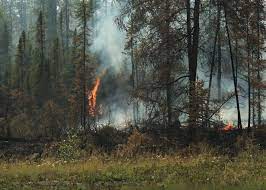“If you hate green, you must hate yourself.” Nyesom Wike
The ramifications of climate change are increasingly severe, particularly evident in Africa. Nigeria epitomises this situation, grappling with significant environmental degradation. A 2020 study published in the Journal of Environmental Science highlighted that desert encroachment claims approximately 2,168 square kilometres of fertile land annually. This alarming trend poses substantial threats to agriculture, water resources, and overall quality of life. The Nigeria Meteorological Agency (NIMET) and health professionals have continually underscored the increasing temperatures and their detrimental impacts on public health. The critical response required from local, national governments and corporate entities is glaringly inadequate. This article suggests immediate measures these groups can implement to address climate change and protect Africa, especially Nigeria’s environmental health. The Federal Capital Territory (FCT) and states such as Anambra, Rivers, Lagos, and Kano should immediately prohibit all single-use non-recyclable disposable polymers.
Every level of government plays an integral role. The first step should involve enforcing existing environmental laws, especially those targeting deforestation and the charcoal industry. Penalties for violations must be severe enough to deter potential offenders. Concurrently, as recommended by UNESCO in 2022, education authorities should incorporate climate change and environmental education into the primary school curriculum. This early introduction can serve as a long-term investment, nurturing a generation of environmentally conscious and proactive citizens.
Governments should also focus on rural women, who often form the un-recognised backbone of rural economies. Initiatives should be launched to educate these women about the importance of sustainable practices and the risks of climate change. Equipping these women with knowledge and resources empowers them to instigate positive change in their communities. Governments can further assist by sponsoring research and development for climate-adaptive crops and efficient water management strategies. This support would arm farmers, especially those in areas most vulnerable to desertification, with the necessary tools to adapt to their changing environment.
Promoting the transition to sustainable energy, it’s vital for governments to encourage and incentivise renewable energy sources. This action could significantly decrease reliance on charcoal and other non-renewable energy sources that contribute significantly to deforestation. So far in Nigeria, Gombe State Governor, Muhammad Inuwa Yahaya, is among the few leaders undertaking earnest climate change mitigation efforts. Organisations like the Federal Ministry of Environment, National Orientation Agency (NOA), United Nations Environment Programme (UNEP), and the Great Green Wall (GGW) should lead mass education and mobilisation efforts targeting all stakeholders. The reality of climate change necessitates protecting our planet for future generations; we are all stakeholders in this endeavour.
On the corporate front, significant responsibilities await. Companies should adhere firmly to corporate social responsibility (CSR), integrating sustainable practices into their operations. These practices could include reducing emissions and waste, recycling, and investing in renewable energy sources. Companies could also contribute by supporting local communities through sponsored educational programmes or sustainability initiatives, enhancing environmental awareness, fostering corporate accountability, and generating tangible benefits for communities facing climate change.
Moreover, corporations should pioneer the development of sustainable goods and services. Such initiatives can stimulate market demand for eco-friendly alternatives and inspire similar actions from other businesses. Companies should actively pursue partnerships with NGOs and government agencies on projects aimed at environmental conservation and sustainable development. Furthermore, corporate entities should issue transparent reports regarding their environmental impact and climate change mitigation efforts. Such openness cultivates trust with consumers and stakeholders, potentially persuading other businesses to embrace similar practices. The Prophet of Islam, Muhammad (peace be upon him), says: “Even if the Resurrection were established upon one of you while he has in his hand a sapling, let him plant it,” is a profound declaration that resonates with environmental consciousness and stewardship. It underscores the importance of taking care of the environment and offers guidance that can be applied to the modern context of climate change.
The looming challenge is substantial, and the current pace of progress is worryingly slow. Governments and corporate entities must undertake immediate, coordinated action to effectively combat climate change and desertification. The stakes are high, and the potential repercussions of inaction are unthinkable. It’s time for Nigeria, and indeed Africa, to spearhead this urgent crusade for our collective future. Planting a tree is a simple act, but it has lasting effects. Trees absorb carbon dioxide, one of the primary greenhouse gases responsible for global warming, and release oxygen.
By promoting tree planting, we contribute to the balance of gases in the atmosphere, thereby mitigating climate change.
The saying of the Prophet Muhammad (peace be upon him) about planting a tree, even at the brink of resurrection, reflects a profound and multifaceted understanding of human responsibility towards the environment. By encouraging tree planting, this teaching aligns with modern efforts to combat climate change, promotes sustainable living, underscores the spiritual and ethical dimensions of environmental stewardship, and offers practical solutions that individuals and communities can embrace. It emphasises the belief in the intrinsic value of nature and the interconnectedness of all life, which resonate deeply with contemporary ecological concerns.
BY:Adam, Ph.D
SOURCE:Dailytrust













